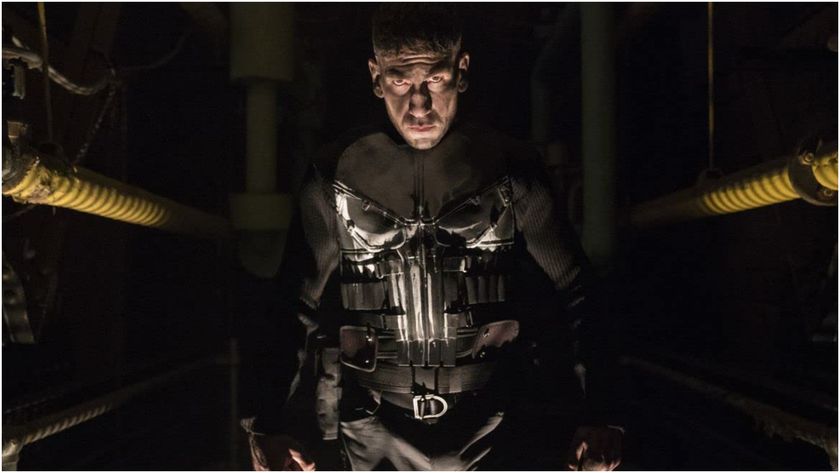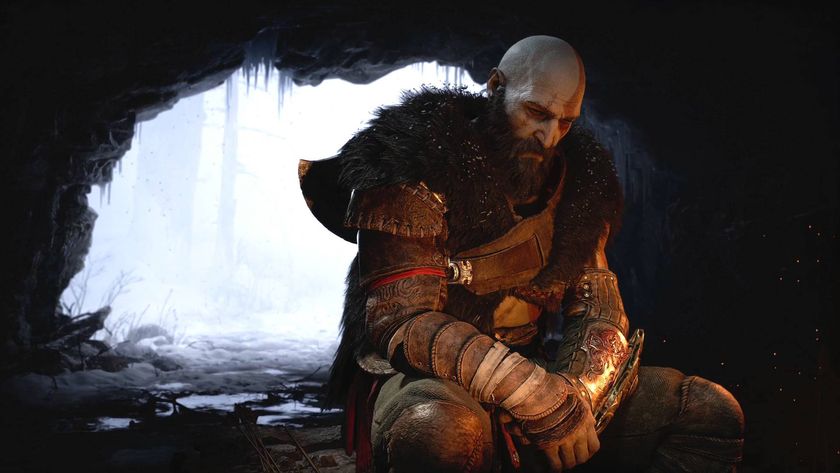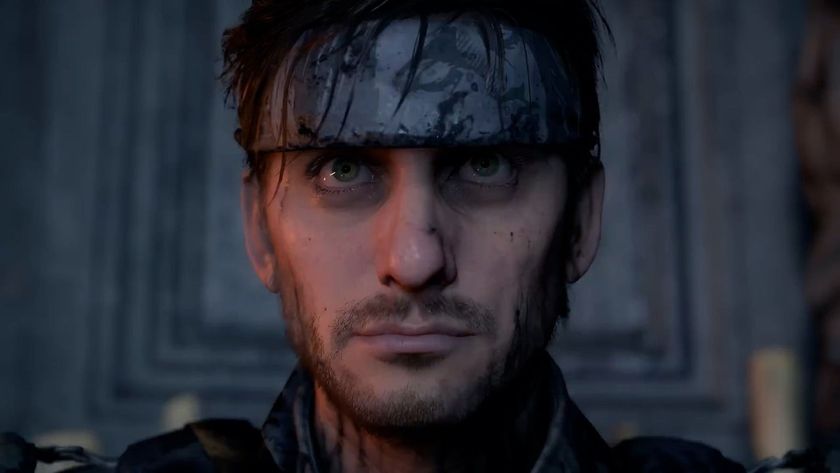The Xbox Series X Storage Expansion Card gets a real-world debut
For storage, Microsoft is "focused on giving as many options as possible"
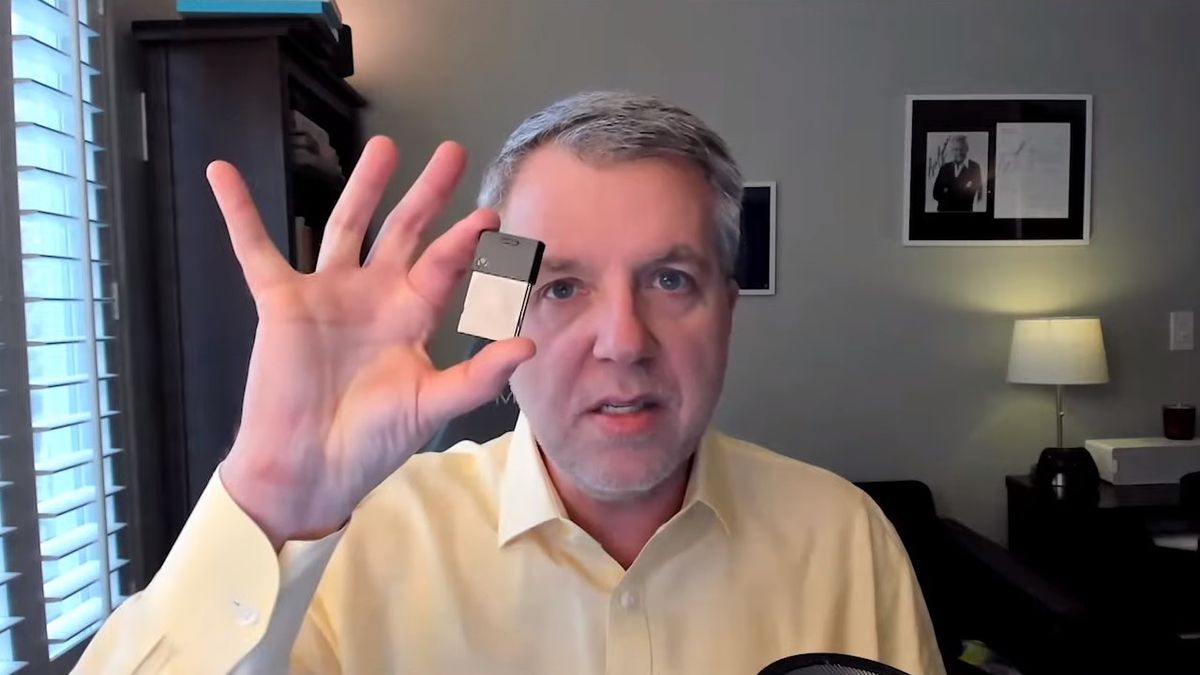
The Xbox Series X Storage Expansion card had a brief moment in the spotlight during the latest Inside Xbox stream. Microsoft showed off the card in real life and offered more insight into how it will let you store more games without sacrificing performance.
At one point in the stream, Larry "Major Nelson" Hryb held up a real-life example of the card, giving us our best look at its practical design and scale yet. If you happened to find this thing in your dresser drawer, you'd probably think it was a forgotten memory card for some old game system - it's almost the exact same size and shape.
This memory card stores a terabyte worth of game data, not just a few megabytes of save files. As Xbox Series X director of program management Jason Ronald explained, it also matches up with the speed offered by Xbox Series X's internal storage "exactly".
"It's all about sustained performance, Ronald said. "So if a game takes full advantage of the Xbox Velocity Architecture, that same game can live on the internal storage, or it can live on that external, expandable storage card. And you'll get the exact same performance."
"But at the same time, we know plenty of people have existing USB hard drives. And we want to make it as easy as possible, so you can easily just take the existing external hard drive that you have, unplug it from your current console, plug it into your Xbox Series X, and all your games are instantly available to you. And you can continue to run all those games directly off that external drive. So once again, we're really focused on giving as many options as possible because we know storage is critically important for gamers who have plenty of games they love playing."
Original story follows
The Xbox Series X console will have an official external storage solution: a 1TB Storage Expansion Card.
Sign up to the 12DOVE Newsletter
Weekly digests, tales from the communities you love, and more
The card will allow players to upgrade the storage on their console, as well as take advantage of the new Xbox Series X loading times features Microsoft revealed today.
With the 1TB Storage Expansion Card, Microsoft seems to be channeling the spirit of old as it looks an awful lot like a memory card. At least, it does on the outside. On the inside, it's a completely different picture with all the hallmarks of highly refined storage tech, reduced into a handy card.
Designed in tandem with Seagate, the Xbox Series X Storage Expansion Card is an official external storage solution that can be plugged into the back of the Series X. It's already one of the most interesting Xbox Series X specs that we've heard about.
From an aesthetic point of view, the card looks very compact and neat, fitting in the palm of your hand. It looks to come with a snug rubber case as well for when it is taken out on the go. Meanwhile, a thicker 'handle' end of the card makes for easy handling and use.
Getting more technical, it's a 1TB card which will double the console's 1TB SSD default internal storage. Which is great, as doubt next-gen games are likely to be bigger in all manner of ways, including gigabytes. On the recently released specs list, it is also described as a "1 TB Expansion Card (matches internal storage exactly)". That means it will retain the benefits of the "full speed and performance of the Xbox Velocity Architecture" that makes the internal SSD so fast. The card will connect directly to the console's processor via PCI Express 4.0 connectors (as described in Digital Foundry's deep dive), offering speedy connections and faster loading times.
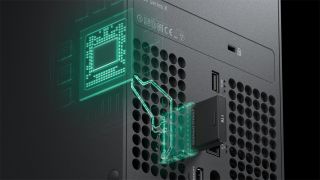
Microsoft's newly published Xbox Series X glossary describes the card as: "Built in partnership with Seagate, this 1TB custom storage solution expands storage capacity of Xbox Series X with the full speed and performance of the Xbox Velocity Architecture. Previous-generation Xbox titles can still be played directly from external USB 3.2 hard drives. However, to receive all the benefits of the Xbox Velocity Architecture and optimal performance, Xbox Series X optimized games should be played from the internal SSD or Xbox Series X Storage Expansion Card."
As mentioned in that description, you can still plug in an external HDD via the USB ports available, but you won't get the optimised experience. However, games you already have stored on one of the best Xbox One external hard drives will be easily accessible on the new console. Just plug it in and go.
Update: In a tweet, Xbox's Larry 'Major Nelson' Hryb later clarified that USB 3.1 and 3.2 external hard drives can still be used to play Xbox One, Xbox 360, and original Xbox games on Xbox Series X. However, Xbox Series X games will "need to be run from the internal SSD or the Expandable Storage Drive."
Speculating about price, the fact that this will be a first-party product direct from Xbox and Seagate means it's likely to be on the expensive side. SSDs might be getting cheaper, but they're still more expensive than HDDs, even more so in the portable marketplace. For example, one of the best external and portable SSDs going, the Samsung T5, has a list or RRP price of around $250 / £190. Add in the proprietary nature of this Xbox Series X card, and we think it'll retain quite a high price tag. Having said that, 2TB of official, fully-optimised and refined storage could well make the expense worth it.
For a distilled breakdown of the information you need to know from today's released, check out our top ten bits of information here.
For more info on today's Xbox information release, you can read up on how big the console is, and see gameplay which reveals the impressive and improved loading times.
Rob is the Deputy Editor of sister site, TechRadar Gaming, and has been in the games and tech industry for years. Prior to a recent stint as Gaming Editor at WePC, Rob was the Commissioning Editor for Hardware at 12DOVE, and was on the hardware team for more than four years, since its inception in late 2018. He is also a writer on games and has had work published over the last six years or so at the likes of Eurogamer, RPS, PCGN, and more. He is also a qualified landscape and garden designer, so does that in his spare time, while he is also an expert on the virtual landscapes and environments of games and loves to write about them too, including in an upcoming book on the topic!
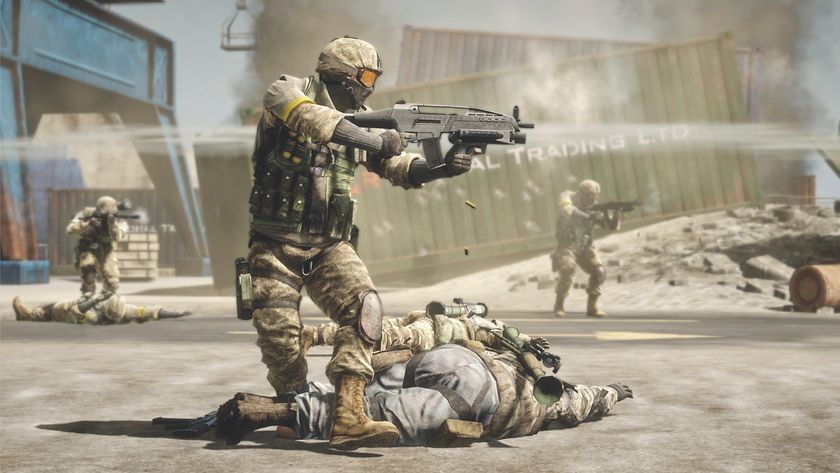
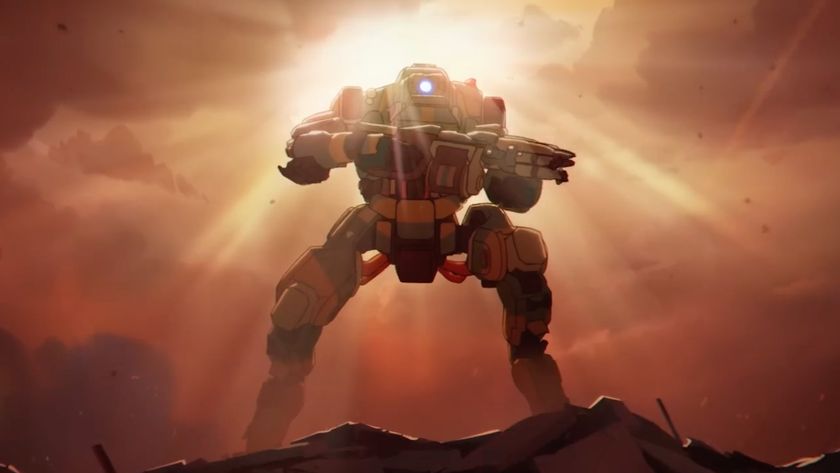
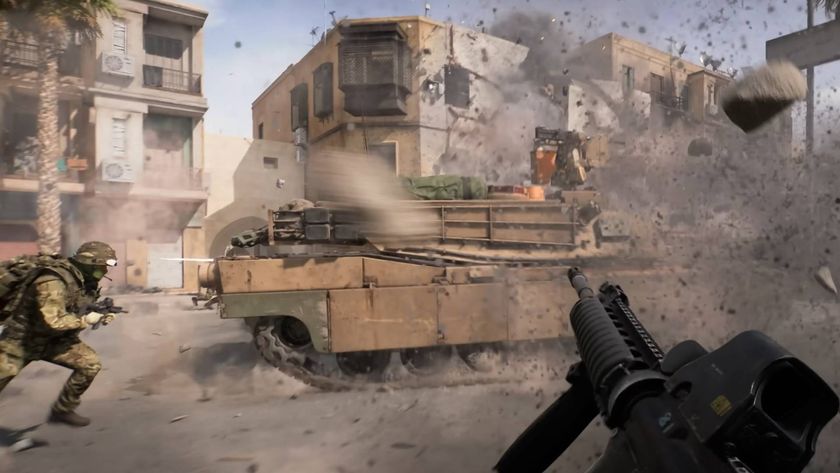
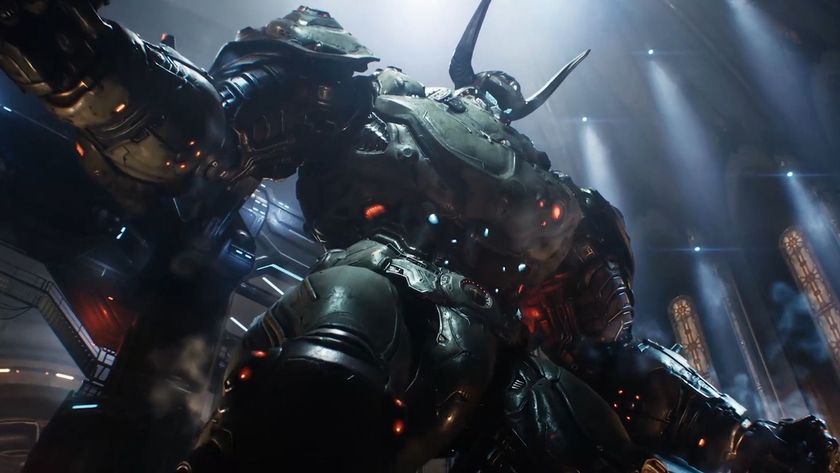



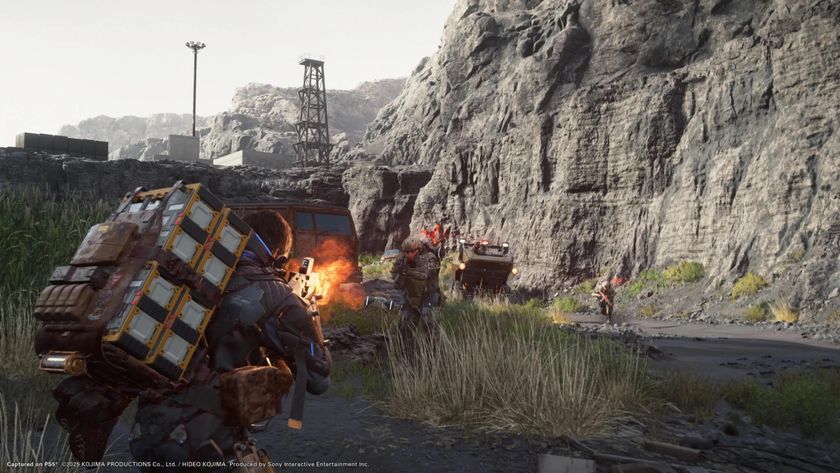
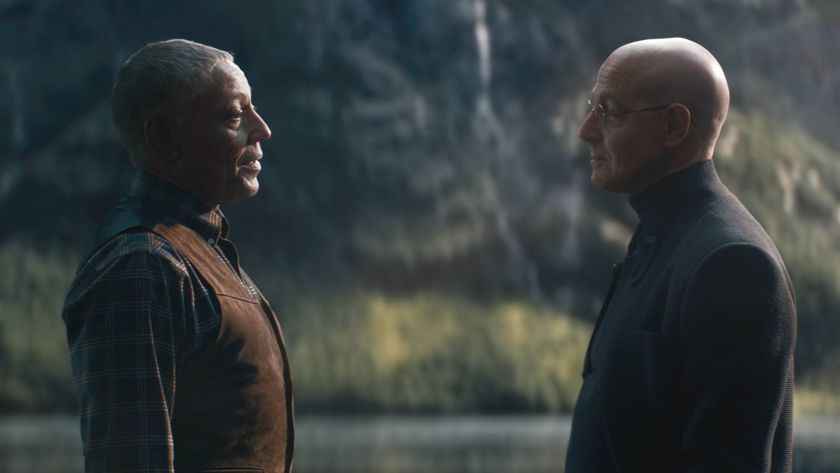

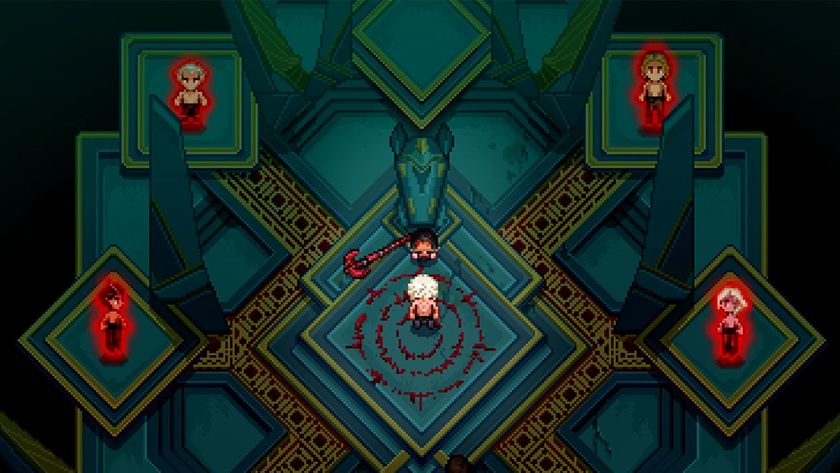
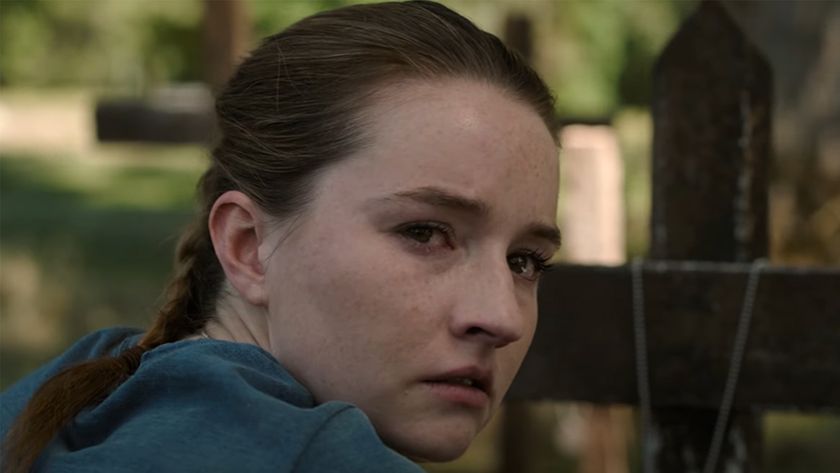

Battlefield dev reveals more of his Bad Company 3 script and confirms the plot would revolve around the squad getting kicked out of the military and brought back for a final suicide mission

Yet another Respawn shooter has reportedly been canceled, following the studio's Star Wars FPS and rumored Titanfall Legends game to the grave


